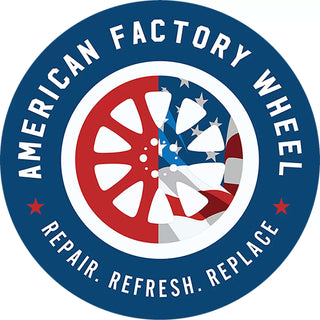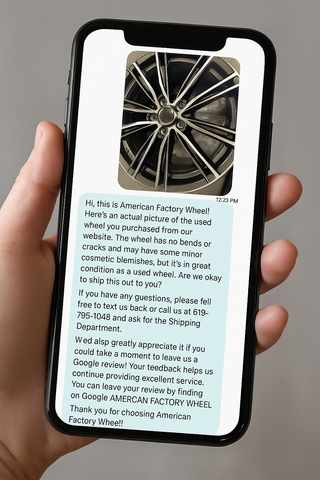-
Product description
AFWUBM512015U20-0030
Product Type : Wheel/Rim (Single)
Interchange Number: 59287
Year Make Model
BMW 323I 1999-2000
BMW 328I 1999-2000
Fitment: Front or Rear
Material: Alloy
Style: 10 Hole
Finish: Silver
Size: 15x6.5
Bolt Pattern: 5x4.75 inch 5x120 mm
Offset: N/A
Indents: N/A
OE Part Number: 1094499
Notes: Caps Not Included
Product description
Product Type : Wheel/Rim (Single)
Interchange Number: 59287
Year Make Model
BMW 323I 1999-2000
BMW 328I 1999-2000
Fitment: Front or Rear
Material: Alloy
Style: 10 Hole
Finish: Silver
Size: 15x6.5
Bolt Pattern: 5x4.75 inch 5x120 mm
Offset: N/A
Indents: N/A
OE Part Number: 1094499
Notes: Caps Not Included
What's The diference Between a Wheel and a Rim?
The terms "rim" and "wheel" are often used interchangeably because, in most contexts, they appear to refer to the same thing—the circular metal component of a vehicle that holds and secures the tire. However, while they are closely related, there are subtle distinctions between the two.
A rim specifically refers to the outer edge of the wheel where the tire sits. It plays a crucial role in sealing the tire bead, ensuring a secure fit, and maintaining proper air pressure. The rim's design can influence the tire's performance, affecting aspects like handling and ride quality.
On the other hand, the wheel encompasses the entire structure, including the rim, spokes, hub, and any other supporting parts. This complete assembly connects to the vehicle’s axle, transmitting power from the drivetrain to the road surface, enabling movement and steering.
In automotive conversations, many people refer to "wheels" when discussing aesthetic upgrades or performance enhancements, while "rims" are often highlighted in contexts involving tire fitting or design modifications. For example, custom rims can add a sleek, personalized look to a vehicle, but upgrading the entire wheel can improve durability, load capacity, and overall driving dynamics.
The confusion between these terms often stems from industry jargon and regional variations. However, whether you're shopping for new wheels or looking to replace your rims, it's essential to know that both terms generally point to the metal assembly that supports and secures the tire, ensuring a smooth and controlled ride.


